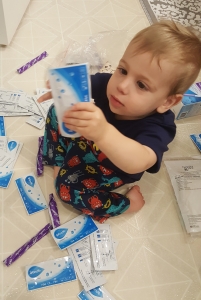
Linking up with Kelly and the rest! Happy NFP Week!

What does a writer for teens have to say about NFP to teens? Plenty! Though the next generation does not need to practice NFP, as they are not married, I feel they definitely should be aware of how even in their youth they can lay the groundwork for possibly employing this tool in future marriages.
[1]
Chastity: Every person is called to chastity, or purity of heart toward one another, according to their state in life–even married couples. When practicing NFP, couples often have to abstain from relations, and continually teat each other with dignity and respect. I definitely think knowing and practicing the virtue of chastity as a teen helped me develop the capacity to practice it as a wife, when it can be challenging to lovingly restrain oneself when your beloved is right next to you.
[2]
Choices (Discernment): When practicing NFP, a couple has to make choices each cycle, choices that could have a bearing on the next nine months the rest of their lives. As a wife, I’ve found it helpful to have had a lifetime developing discernment skills to help me make decisions with my husband. We know how to draw upon the framework and guiding principles of our faith to feel at peace with our choice. I think the teenage years are a critical time for getting used to thinking about deciding something for one’s self, figuring out how and what you should use to make those decisions, being aware of the consequences.
[3]
Fruits and Gifts of the Spirit: The gifts and fruits of the Holy Spirit imbue my marriage, and we use the gifts and enjoy the fruits of the Spirit in our practice of NFP. We receive these gifts during the sacrament of Confirmation. Many American religious programs reserve the sacrament for teenagers. I think it’s a boon for teens if they embrace these gifts and have a guiding hand in realizing how they can employ them now and their whole lives through.
[4]
Knowledge of Self: I didn’t know about NFP and more generally, fertility awareness , until I was an adult. How clueless I was about my own body! I sometimes feel cheated out of years of knowledge of my womanhood and the empowerment that comes from that. Though it may not be prudent to teach teen girls everything about NFP, giving them an awareness of their cycle and fertility can aid in their confidence and give them a gift that can last into their adult years. In fact, a study found that teaching teen girls about their cycles reduced the incidence of negative consequences and poor decision-making.
[5]
Sacrifice: NFP involves sacrifice. There’s no other way to put it, no need to make it more complicated. If a person comes to marriage without having experienced sacrifice, particularly choosing to sacrifice for the good of another, out of love for another, they can face more challenges than they anticipated. I think it behooves teens to learn to sacrifice their whole lives long, but especially as teenagers when they are more capable of understanding the meaning of their act. I personally think it imperative that boys and young men are taught the virtue of sacrifice. So often NFP and the related issues focus on women (because it does involve an intimate understanding of our own bodies) that I think sometimes men don’t receive the fullness of knowledge about not just what it is and how it works, but what it’s like to practice it. Teen girls and boys alike should be encouraged in making gifts of self, so that way when times in their marriage call upon them to do so, they’re not surprised or even disgruntled.
[6]
Eucharist: Marital love is a literal communion. Reception of the Holy Eucharist in the sacrament of Communion strengthens all of us, especially married couples, who are called to be Christ to one another in the domestic churches of our families. Unfortunately, I’ve seen in the teen years a slide away from the Catholic faith in some kids. Rather than reception of the Eucharist becoming just a rote thing done on Sundays, it should, in the teen years, have a revival of the specialness and sacredness it held when they first received as a younger child. Receiving Jesus in this way should be encouraged, as it is the foundation for lifelong holiness.
[7]
Family: NFP is about children–either having them or not at the time of your practice. Can you imagine growing up without young children in your life, knowing what it means to pull together as a family and then be thrust into parenthood. For me, it was like getting dropped into a whole new planet. Sure, I was equipped with some God-given grace and new capacity for love to help me navigate the unfamiliar world, but it was still a huge adjustment with many challenges, perhaps moreso because I hadn’t cultivated enough of an understanding of babies or the skills for parenting–like dealing with frustration with more patience or responding to others with empathy. Now, I realize much of that is circumstantial and no one’s fault, but I feel it would have only aided in my own parenting to have had more experiences during my formative teen years. There’s a great program for elementary-aged children, in which a baby comes to the classroom to teach students empathy. Wouldn’t it be great if teen boys and girls were exposed to opportunities to love the littlest? They’re pretty great.

My book, Ten Commandments for Kissing Gloria Jean, touches on all of these aspects and is still on sale, just $2!–a great price for mother-daughter book clubs, Confirmation programs, and school class sets.